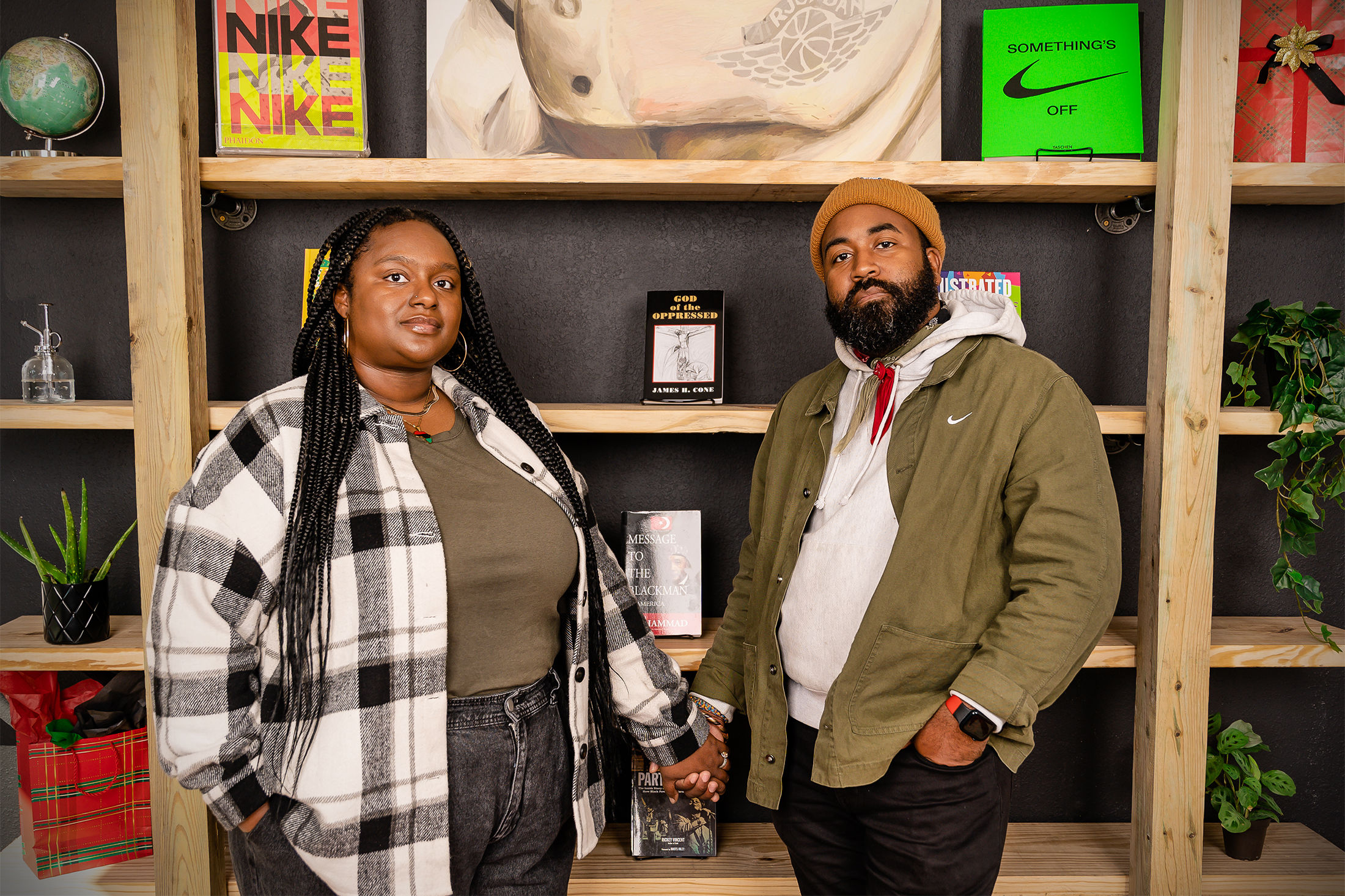How One of the Only Community Fridges in Houston Has Thrived

The Wow Project's community fridge in Alief is open to the public on Sundays.
Across America, a quiet hum is replacing the rumble of empty stomachs. Community fridges offer free, accessible pantries stocked with fresh food. Driven by a simple idea and fueled by volunteers who want to fight food insecurity, they are popping up in both cities and rural towns.
In Houston, in a state where 4.6 million people are food insecure, Vanessa Lipscomb and her team at the Wow Project, a nonprofit founded in 2012 that works on food access and wellness, are leading the charge. The organization’s community fridge, located at 12131 Beechnut Street in Alief, feeds many in the area at its permanent location at D’Hope Services, an international shipping company. Unlike many fridge operations that have faded, the Wow Project thrives by focusing on quality over quantity, Lipscomb says. Open only on Sundays due to volunteer limitations, it prioritizes fresh, healthy food, partnering with Trader Joe’s and Plant It Forward, an urban farm network with land across Houston. The fridge project combats food deserts by offering produce, herbs, and even plant-based protein, all carefully sorted and curated for individual needs.
“Most of our programming was centered around kids and teaching them about the eight dimensions of wellness,” Lipscomb says, adding that they had to stop the program when COVID hit. “I was scrolling on Instagram and happened to see that there was a group in LA that had community fridges. So, I reached out to them and asked how to get started.”
Running a successful community fridge takes more than just good intentions. Lipscomb’s journey, from pivoting her youth program to navigating sometimes-hesitant Houstonians, offers valuable insights for anyone considering joining the fight against food insecurity.

Vanessa Lipscomb focuses on stocking the community fridge with healthy food options.
Image: Courtesy The Wow Project
First things first, location is key. Finding a welcoming home can be trickier than finding a perfectly ripe avocado. Lipscomb advises looking for mom-and-pop shops or community centers with a heart for outreach, places where the fridge won’t just be tolerated but embraced. A friendly face behind the counter can make all the difference.
“Because Houston is so spread out and still not as progressive as other places, a lot of people don’t like the sound of it because they think, ‘I’m gonna get a lot of homeless people loitering or a lot of people just hanging out outside my business,’” Lipscomb says.
Quality over quantity is Lipscomb’s next mantra. While the allure of a 24/7 fridge might be strong, she has had to consider the logistics. Weatherproofing, managing food flow, and preventing hoarding become strategic puzzles in Houston’s temperamental weather.
“You’re going to need a team of people to help keep the fridge stocked if it’s 24 hours because there’s the possibility that one person can try to take almost everything and not be considerate of everyone else,” Lipscomb explains. “Also keep in mind that a 24-hour fridge needs to have a good power source and shelter if it’s outside because Houston is such a weird weather place. You need some type of shelter that can absorb the heat from the sun as well as not get wet from rain.”
Trust is the corner cupboard in these kitchens. Unlike traditional pantries, community fridges thrive on open access. Forget income checks and eligibility requirements. Instead, Lipscomb says it’s important to foster a welcoming environment where respect is the only thing that matters, letting people choose what they need, and offering a sense of dignity and control often lost in the day-to-day shuffle.
“We don’t ask any questions,” Lipscomb says. “We don’t ask to see paycheck stubs or identification. We want everyone to be able to leave with something.”
Running a fridge isn’t a solo act. Building a strong team of volunteers is as important as anything else. Lipscomb delegates tasks and shares the load, and she’s not afraid to reach out and ask for help or advice from other fridge networks, tap into local resources, and leverage social media.

Visitors at The Wow Project's community fridge in Alief.
Image: Courtesy The Wow Project
Looking forward, Lipscomb hopes to raise more awareness about community fridges for users and locals alike. She also hopes to eventually be able to partner with someone who can help provide more healthy dairy alternatives for users.
Despite the challenges that come with running a community fridge, Lipscomb says being able to feed those in her area who do not have financial access to healthy food is rewarding. Lipscomb, who recently had a baby, fondly recalls a houseless man who thanked her profusely after utilizing the fridge to feed his pregnant wife in the winter.
“Hearing that made me feel good but it also made me so sad because that could have easily been me if I had fallen on hard times while pregnant,” Lipscomb says. Food insecurity and houselessness can happen to anyone, and organizations like the Wow Project are aiming to help fill the gap in Houston and beyond.




